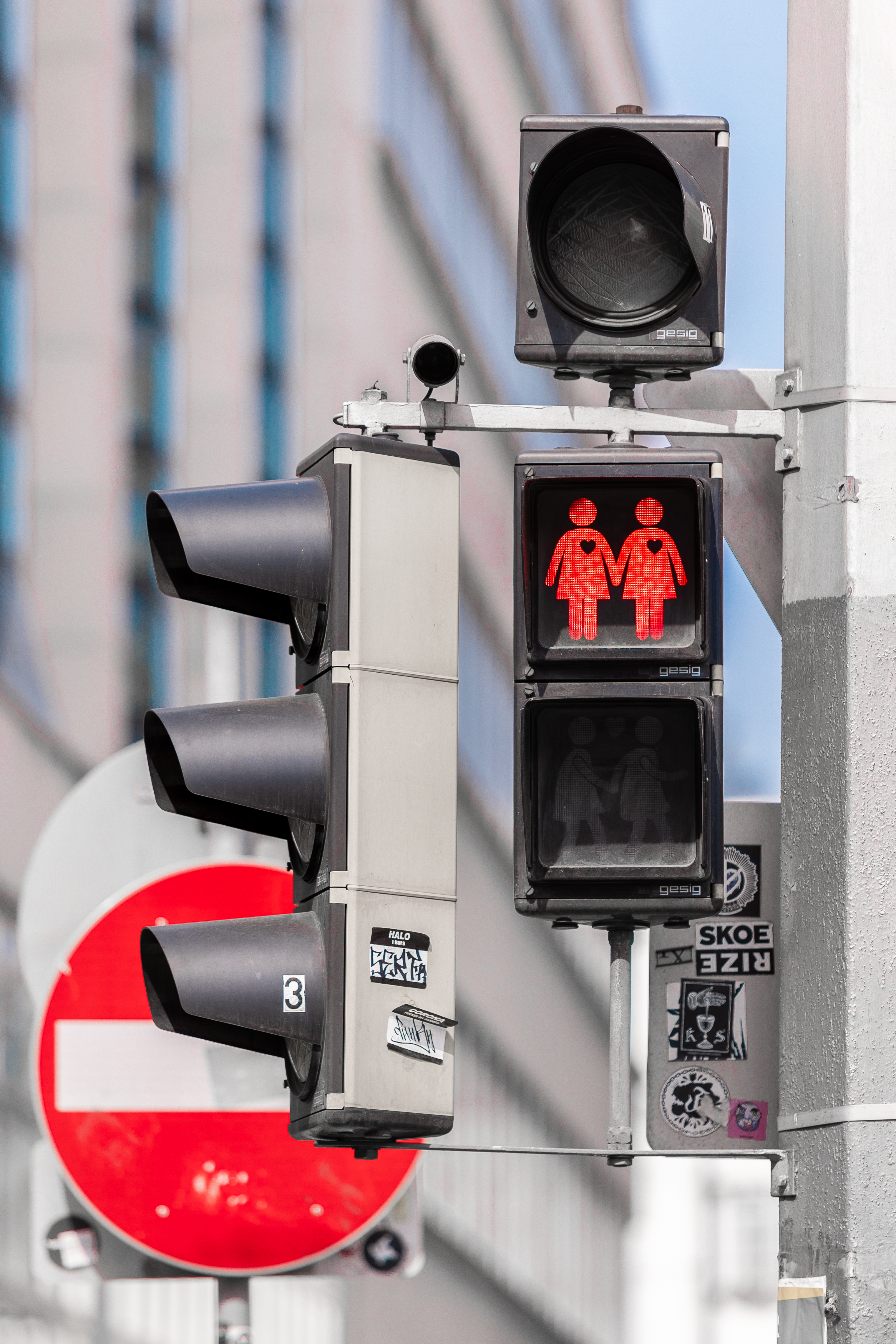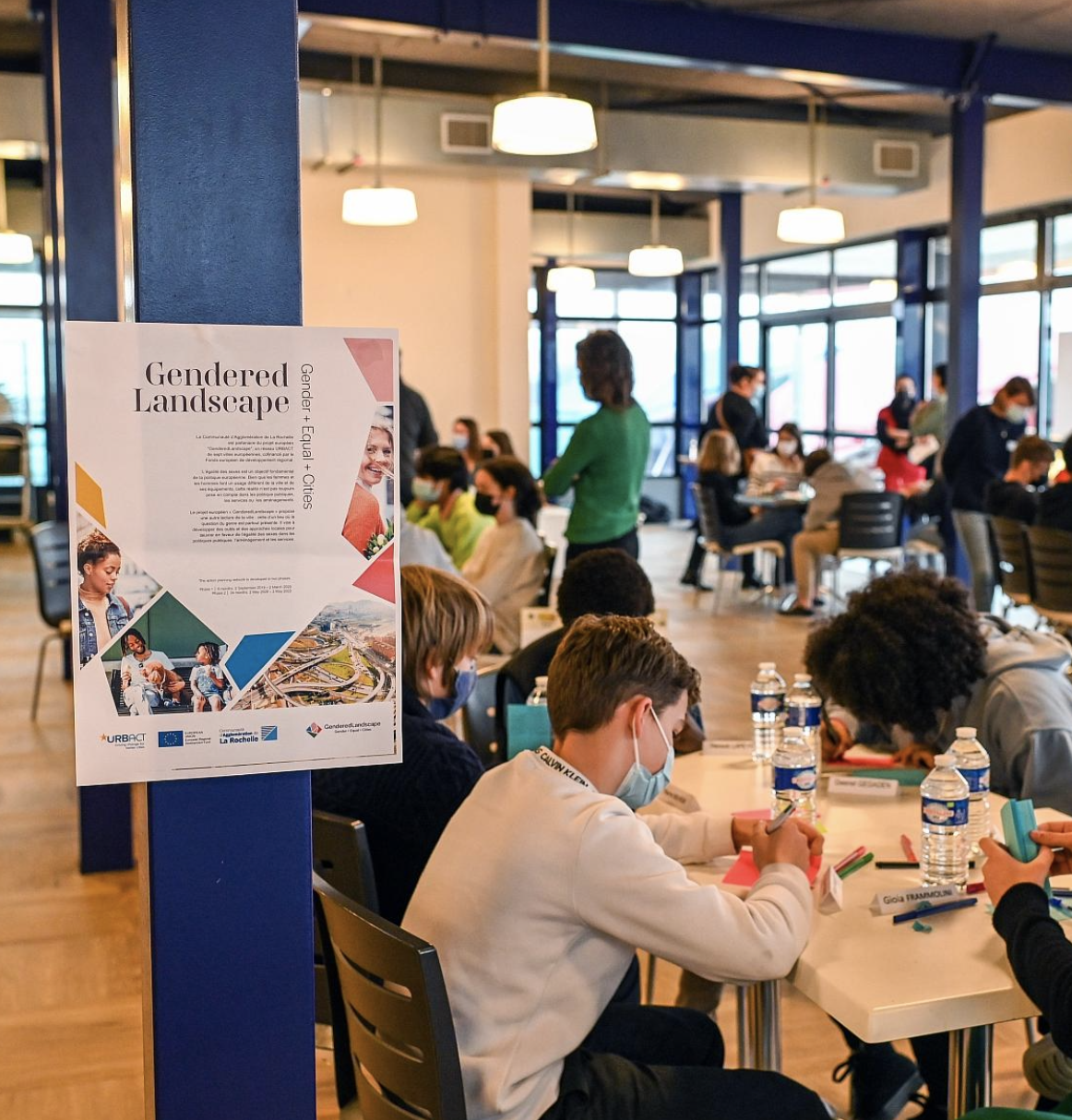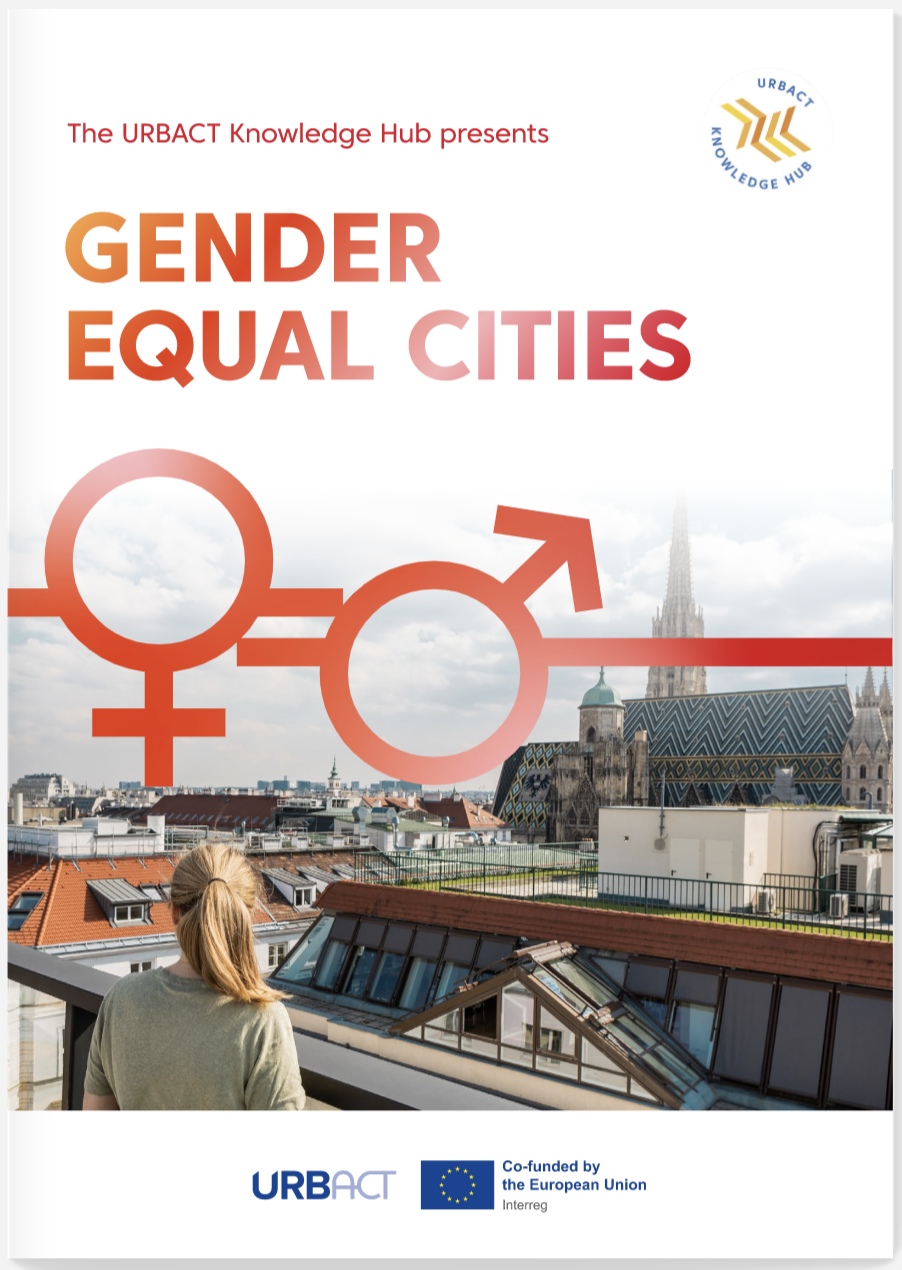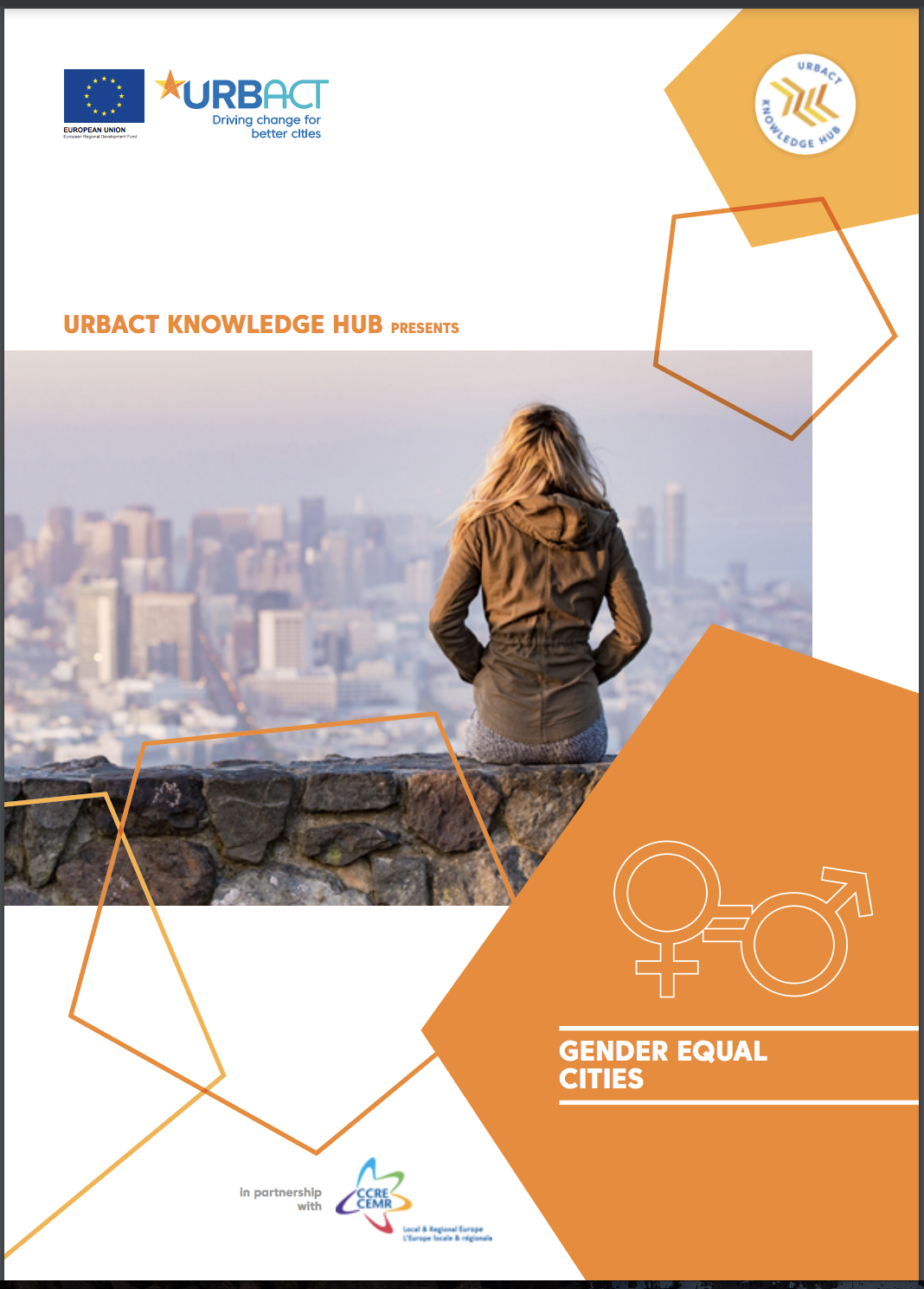Every year on 8 March, International Women’s Day reminds us the progress yet to be made for gender equality at international, national, local and individual levels.
To support this fight, URBACT has funded several city networks working on gender equality for which tools, guidance and inspirational examples are captured in the Gender Equal Cities URBACT Knowledge Hub. The current open call for Action Planning Networks is a unique opportunity for cities to join forces when it comes to this matter, no matter which urban topic they choose to tackle. From mobility to digital transition and even green jobs, any local policy will be more successful and sustainable if the gender dimension is taken into account.
Get a taste of 10 stories when it comes to a just transition. Whether you are applying to join an URBACT Network or not, read on – and take a trip down memory lane – to get some inspiration of what can be done for more gender equal cities.
Umeå (SE)
A gendered landscape
Umeå is definitely a city that holds gender equality close to its heart. Besides having a municipal Gender Equality Officer working across different departments, the city has long been involved with URBACT when it comes to this subject. Back in 2011, the municipality joined the WEED Action Planning Network (2008 - 2011) as a Project Partner and, later on, became the Lead Partner of the Genderedlandscape Action Planning Network (2019 - 2022) with the objective to further work on this issue with other EU cities. The city has greatly contributed to both versions of the Gender Equal Cities report (2019 and 2022), both developed under URBACT Knowledge Hub activities. For now, let’s take a closer look at another accomplishment from this city: back in 2017, Umeå received the URBACT Good Practice label for providing guided bus tours to show “the local gendered landscape”.
This is an innovative way of showing how working with gender equality takes form in a city. It exemplifies successful changes and work in the city, as well as illuminating remaining issues. In line with Umeå’s high ambitions on sustainability and gender equality, the gendered landscape method is the first of its kind in Europe. It’s not about traditional neighbourhood safety or security surveys, it’s about taking the city itself as the starting point, highlighting gendered power structures and how they can be understood and transformed, while educating and raising awareness of locals. There are several examples of how the initiatives of the bus tour have made an impact in the planning and development of the city. For example, the Umeå’s Street and Parks department permanently changed their methods for dialogues with citizens and gender-mainstreamed the content of steering documents. Another example is the monitoring done by the culture sector, which has observed a positive trend towards gender equality. For instance, in 2015 there were 45% women (out of 2 000 events) were main performers in the cultural stages in Umeå, a big increase in comparison to previous years.
Celje (SI)
A pioneering city for women's employment
Under the tagline “Women, Enterprise and Employment in Local Development”, the WEED Action Planning Network (2008 - 2011) was URBACT's first gender-led funded project ever. Ahead of its time, it aimed at mapping and developing integrated local actions to improve women’s labour opportunities in 11 EU cities. Led by the municipality of Celje, its Local Integrated Action Plan was focused in the identification of service gaps – alongside the focus on women’s employment – proved to be an effective way to attract significant fund opportunities. Based on an initial analysis of the local households, unemployed women were the ones who lacked the most training and access to jobs and skills’ resources. That’s how the idea for a Centre for Information, Consultancy and Education came up. The proposal consisted of creating an educational programme that could support women and enable them to even work in the centre later, if they wished to. By the time the WEED Network was coming to an end, 300 000 EUR from the European Social Fund had been secured for the centre. Most recently, the city has taken part in the Genderedlandscape Network as Project Partner.
Vienna (AT)
A gender equal city

The city of Vienna is an example that is showcased in both editions of the Gender Equal Cities report (2019 and 2022) and in the Gender-responsive Public Procurement module (2022). The city also hosted twice URBACT Knowledge Hub workshops, notably the one in 2018. In this occasion, the first policy report was conceptualised. Moreover, the city represented URBACT during an interactive workshop in the 11th World Urban Forum 2022, in Katowice (PL). It also took part in the sub>urban Action Planning Network (2015 - 2018) to rethink the fringes of its urban area. The city is a pioneer when it comes to gender mainstreaming in urban planning. It has one of the longest legacies of gender-sensitive planning with the Women’s Office opening in 1992 and the gender mainstreaming – which means the implementation of gender as a cross sectional issue – starting in 2005.
Today there are gender experts and multipliers all over the city. Gender is integrated into the city’s strategies and all public space, that is designed and built by the municipality, is done so with gender in mind. The outcome is an urban landscape that benefits everyone: parks are lit effectively to provide safety and access, social housing is architecturally designed with flexibility for different family situations, pavements are wider for parents and the elderly, street crossings are longer and pedestrians are prioritised, among other interventions. In addition, the municipality counts with Gender Budgeting Unit, which works with the finance team to oversee the annual budget across all departments using citywide data. As a frontrunner, the city is keen to share its experience with other cities across the world. It has published guides providing practical advice, offering explicit tools and tips, including gender-sensitive language, data collection and advice on how to avoid gender-mainstreaming becoming a catch-all buzzword.
Trikala (EL)
Piloting childcare support
The municipality of Trikala has been involved in a series of URBACT Networks, but in 2019 it joined its first gender-led project, the Genderedlandscape Action Planning Network (2019 - 2022). Led by the city of Umeå, this was the perfect occasion for the municipality of Trikala to strengthen and support the delivery of Greece’s National Action Plan on Gender Equality 2021 - 2025 (NAPGE). Prior to this experience, the city had already signed the CEMR European Charter for Equality of Women and Men in Local Life. In May 2020, a municipal gender committee was established to advise public departments. Trikala was able to experiment with different activities, which were developed under the Genderedlandscape small scale actions. A successful experience was the creation of areas within municipal cultural centre and other facilities dedicated to childcare. Henceforth, women and men have a safe space in the heart of the city for breastfeeding or feeding their babies and children, changing diapers, playing and even resting. This story has been showcased in the latest version of the Gender Equal Cities report.
Val-de-Marne (FR)
Welcoming and integrating female migrants
In September 2015, European cities witnessed the largest migration flow since the World War II. Around the same time, the ARRIVAL CITIES Action Planning Network (2015 - 2018) had just been approved. The cities involved in this network came together to stand against a backcloth of rising discrimination and prejudice against immigrants, with the objective to ensure social cohesion and the migrants’ integration. Val-de-Marne (FR) was one of the cities that joined this fight for immigrants’ rights. But contrary to the majority of its peers and other French cities, Val-de-Marne saw a particular rise on the number of women’s migrants. Despite the fact that women immigrants counted for more than 51% of the total immigrants in Val de Marne, they were considered as a minority. It’s worth mentioning that 20% of the people permanently living in the county of Val-de-Marne were born outside of French territory, a rate 18% higher when in comparison to the average in the Parisian region.
The issue of social, territorial and gender inequalities have long been at the heart of political and civic commitments in Val-de-Marne. The ARRIVAL CITIES Network was the perfect occasion to further support the emancipation and empowerment of the migrant population. The main challenge when it came to integration and gender equality was the significant professional deskilling. The participation of this city in this URBACT Network has strengthened partnerships with different associations, including the support to the Internship and Training Programme for Women, meaning women could start the process of job integration from the moment they set foot in France. In addition, the Local Integrated Action Plan set out a series of activities for civil society capacity-building and participation, including a Kurdish Women’s Festival that was held in 2017 in partnership of a series of NGOs.
Gdańsk (PL)
Women in blue entrepreneurship
The municipality of Gdańsk has taken part in countless URBACT Networks. Unsurprisingly, the city is also one of the key case studies that are showcased in the latest version of the Gender Equal Cities report. The municipality has developed an app to feature the changing role of women’s employment in its famous Shipyard, simulating experiences from 1945 to 1996 with photos, biographies and audio material. It also used archives and other records, including extracts from a documentary that was shot in 1968. The objective was to give a voice to women’s from the past, telling their everyday working experiences, while encouraging girls and women to reflect on their career development. It’s worth mentioning that the city is a Project Partner in the BluAct Second Wave Transfer Network (2021 - 2023) draws lessons from its previous edition, the BluAct Transfer Network (2018 - 2021). This time around, a big emphasis was put on how blue economy entrepreneurship could help achieving gender equality.
Pordenone (IT)
The city of the future?
Following the success of the Playful Paradigm Transfer Network (2018 – 2021), a spin off network was approved: the Playful Paradigm Second Wave (2021 - 2023). While the first experience focused on gamification, public spaces and using “play” as a tool to re-think cities, the second time around allowed involved cities to look deeper at placemaking and building gender-sensitive places. During one of its meetings, this network decided to focus on the topic of “play for sustainable urban regeneration”, which resulted in a Gender Toolkit. Among the case studies, the city of Pordenone (IT) was showcased. This is a forward-thinking municipality that is always on the lookout of innovation – hence its involvement with the SibDev Action Planning Network (2019 - 2022). The story of how they used immersive techniques to explore gender and urban planning is also told in the most recent version of the Gender Equal Cities report. In Italy, women make up more than half of the national population, still they continue to live, move and work in urban contexts that were historically designed and coded by men. The gender gaps in participation and planning highlight persistent structural inequalities.
The city of Pordenone sought to develop a participative format that could be applied in medium-sized cities to encourage the collective conceptualisation of how the future of the city might be. Their core question was: can we envision a better future from a gendered perspective? Their main goal in this process was to raise awareness among the population of the city and embed gender mainstreaming in planning and policy in the city. The city chose strategic areas to focus – work, intergenerationality, time and spaces – and designed a treasure hunt through the city based on Live Action Role Play (LARP). A path was established, which included stops at schools, supermarkets, public buildings, the cinema etc. Female participants were instructed to answer questions at each stop and find an object from the past and the future. The next point in the path resulted from their answers and choices. The goal was to facilitate a new vision among the participants by disrupting usual scenarios and offering a new perspective on familiar spaces.
Cesis (LV)
Girls' school coding clubs

Up until today, the lack of girls and young women specialised in Science, Technology, Engineering and Mathematics (STEM) in school and universities is undeniable. Taking part in the TechTown Action Planning Network (2015 - 2018) to build more digital cities, the city of Cesis has quickly noticed this structural issue. The school curriculum is normally fully dedicated to other priority topics and cities, themselves, have little or no ability to influence children’s preferences. However, there are often possibilities to “hack” the programme. For instance, the municipality can suggest schools to add extra-curricular activities: coding clubs or “lunch and learns” – which target girls and provide strong female role models in STEM jobs.
The Cesis branch of the Riga Technical University has created additional activities for students aged 12 - 19 and lego robotics classes the in Cesis Children and Youth centre. Even short interventions can make a big difference. Throughout its action-planning journey, inspiration was drawn from the LearnIT.lv in Latvia. This experiment showed that after only a two-hour workshop on STEM subjects, girls’ interest in studying coding switched from 2% to 13%. It’s also worth mentioning, that this is still a very current challenge. More recently, in the framework of the Genderedlandscape Action Planning Network (2019 - 2022), the city of La Rochelle (FR) – which is known for its heavy nautical and industrial sectors, with a vast majority of male workers – has developed a series of hackathons for school children and, more specifically, girls.
Basque Country (ES)
Gender and regional law
Although not an URBACT beneficiary per se, the Basque Country is not a “new face” to the URBACT community. Besides being showcased in both versions of the Gender Equal Cities report – brining to light matters from guidance to women who are elected officials to education to end gender-based-violence – a speaker from Emakunde (the Basque Institute for Women) was invited to take the floor during a plenary session “How gender equality creates sustainable cities”, during the URBACT City Festival in Pantin – Greater Paris. More recently, the city was showcased alongside Vienna as a key example for Gender-responsive Public Procurement. This new module of URBACT’s Online Course on Strategic Public Procurement was done in partnership with the Institute for Gender Equality (EIGE).
In 1999, gender equality was first incorporated into regional law in the Basque Country. Since then Emakunde has worked alongside the Association of Basque Municipalities (EUDEL) to incorporate gender considerations into public policies and procedures, including into procurement. This collaborative approach has created enabling conditions, built capacity and supported local level actions. As a result, according to the latest available data, in 2020, 87% of public procurement included at least one gender equality clause. That is up from 67% in 2015, 42% in 2010 and 11% in 2005. A concrete example is from Artziniega, a small Basque town, where the municipality contracted daycare services for elderly people in 2021 including specific criteria in the tender related to equal opportunities for women and men. To find out more about this experience, check out the URBACT Gender-responsive Public Procurement modules.
Future Action Planning Networks' cities
What URBACT IV holds for beneficiaries
URBACT is committed to improving gender mainstreaming in all programme activities: in EU responses to urban challenges and in the planning processes of all URBACT cities. Unsurprisingly, gender is among the three crosscutting priorities for this programming period (2021 - 2027) – alongside the green and the digital themes. This doesn’t mean that, from now on, all URBACT Networks will exclusively work around these topics. On the contrary, the programme welcomes a bottom up approach where eligible cities can choose to tackle different urban challenges that are common to projects partners and which are fit to the local needs. Henceforth, gender should be considered as an underlying matter, from which solutions can be drawn to hindering issues. As the Cooperation Programme states:
“Although URBACT operates a ‘bottom up’ principle to allow cities to identify their own challenges, the horizontal principles (EU Charter of Fundamental Rights, gender equality, non- discrimination, sustainable development, accessibility) outlined in Article 9 Regulation (EU) 2021/1060 will be addressed by all networks as part of the assessment criteria for selecting projects. The ongoing monitoring and evaluation of the networks will aim to highlight good practice in these areas. Specific training on gender equality, digital transition and climate action will be compulsory for all networks. (…) URBACT IV will increase the capacity building offer linked to digital, green and gender as cross-cutting elements for all networks and activities of the programme. (…) As part of the URBACT Knowledge Hub, thematic activities will allow cities to meet and exchange on topics cutting across URBACT networks, including green, digital and gender-inclusive’’.
With the current open call for networks, you can already see some hints in the Partner Search Tool as to how cities plan to incorporate the equality spectrum to their proposals. At last, following the example from WEED and Genderedlandscape, some cities might see the potential of focusing their efforts directly in the core of this subject. This is the case of at least four project ideas and, maybe, many more that are not published online. The open call for Action Planning Networks remains open until the end of March and the URBACT team looks forward to seeing what comes next.

After reading these 10 examples, we trust that you will be as inspired and galvanised as much as we are to continue fighting for true and concrete gender-led action across European cities, ensuring equity, diversity and inclusion to all.
To find out more about Gender Equal Cities, be sure to check the URBACT Knowledge Hub!




